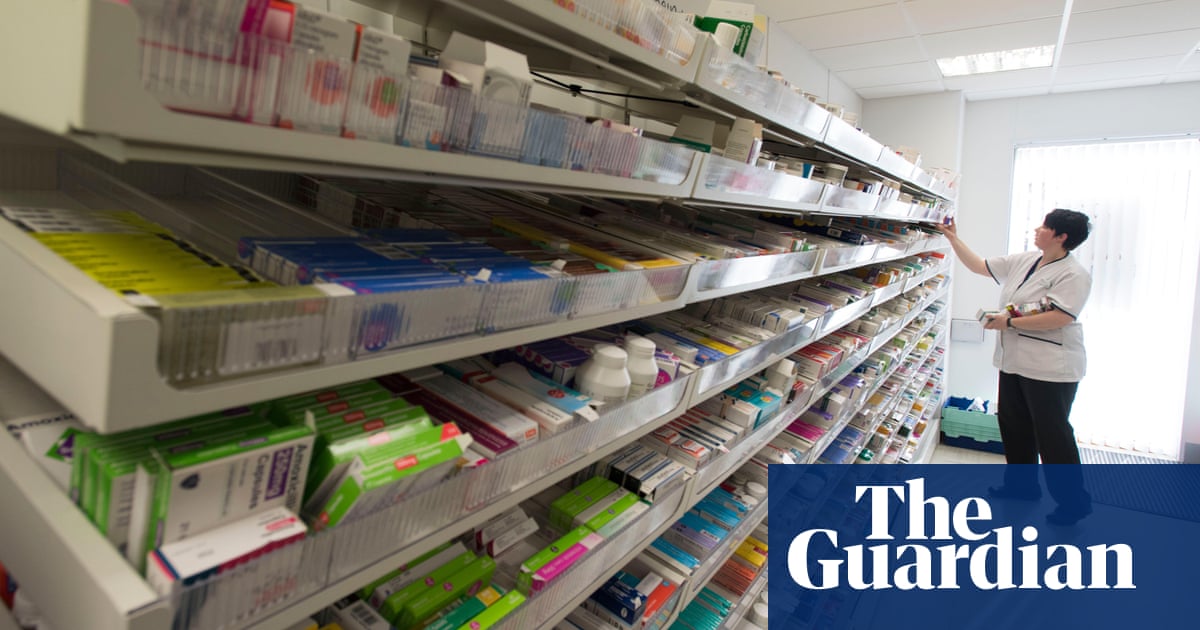Drug Shortages in the UK: A Crisis Deepened by Brexit
The shelves of a busy pharmacy in London stand half-empty, the usual array of brightly colored pill bottles replaced by handwritten notes that read “out of stock.” This unsettling scene has become commonplace in many UK pharmacies as the nation grapples with its worst drug shortages in four years. Official figures reveal a staggering 1,938 disruptions to the supply of medications last year, the highest since 2021, sparking fears about patient care and safety, particularly for those with chronic conditions like epilepsy and cystic fibrosis.
The Growing Crisis
The Nuffield Trust, a prominent health think tank, reported that Britain’s healthcare sector is facing a worsening situation compared to other European countries, largely attributed to the repercussions of Brexit. “While globally, drug shortages have been a persistent issue, the UK stands out with elevated disruption levels,” said Mark Dayan, a policy analyst at Nuffield. “We have seen a concerning decline in imports from the EU, which has contributed significantly to this crisis.” The implications of these shortages are dire, with patients struggling to obtain medications that are crucial for their health.
The Data Behind Disruption
In 2023, the number of supply interruptions show a troubling resurgence, indicating that the previous years’ declines may have been temporary. Key data uncovers the extent of the crisis:
- 1,938 instances of supply disruptions recorded in 2023.
- Only 1,634 disruptions recorded in 2022.
- The UK has the lowest import growth in medicinal supplies among G7 nations, a trend exacerbated by Brexit.
The statistics reveal that while many countries are experiencing supply issues, the UK has faced a particular downturn, particularly in imports from the European Union.
Brexit’s Role in the Shortage
Dayan notes that Brexit has “pushed the UK out of several European supply chains,” leaving health professionals and patients at risk. The trade barriers imposed after leaving the EU create complications that did not exist before. For example, imports of drugs from EU countries have decreased significantly post-Brexit, making recovery from these shortages more challenging than it might have been otherwise. The ramifications have also extended to drug exports; HM Revenue and Customs data indicates that UK exports to the European Economic Area have decreased by about one-third since the Brexit vote in 2016.
Impact on Patients and Pharmacists
The emotional toll of these shortages is palpable. “Pharmacies are at the sharp end of medicines shortages, frequently having to turn away distressed, frustrated, and sometimes angry patients,” stated Nick Kaye, Chair of the National Pharmacy Association (NPA). “Patients rely on us to provide their necessary medications, and it is both frustrating and heartbreaking when we can’t deliver.” Kaye even suggested that policymakers should permit pharmacists to offer safe alternatives to patients when their prescribed medications are unavailable, emphasizing the need for flexibility in a crisis.
Experts argue that the ramifications of medicine shortages extend far beyond individual inconveniences. “Patients’ conditions may worsen without timely access to medications, resulting in more severe health crises that could have been avoided,” highlighted Dr. Elizabeth Marshall, a leading healthcare researcher at the University of Bristol. “Our healthcare system is built on the assumption that medications will be available. When that fails, it creates distrust and fear among patients.” A hypothetical study conducted by the University of Manchester supports this view, indicating that nearly 40% of patients reported adverse health effects due to medication shortages.
Looking Ahead: Possible Solutions
The situation demands urgent action from UK officials. The Department of Health and Social Care (DHSC) has responded by stating that it is pursuing a multi-faceted approach to mitigate this crisis. “This government inherited ongoing global supply problems,” a spokesperson declared, emphasizing that measures are in place “to strengthen our domestic resilience” and reduce red tape. Investment totaling up to £520 million is promised to enhance local manufacturing of medicines and diagnostics.
European Strategies and Risks
While the UK strives to bolster its medication supply, the European Union is taking concerted steps to counteract shortages. “The EU is fortifying its own supply chains, and there is a very real risk that the UK will be left out in the cold,” warned Dayan. Such strategic pitfalls could further entrench the UK’s vulnerability in the pharmaceutical market, compounding the ongoing crisis. Experts recommend that the UK engage more fully with European partners to share best practices and resources in medicine distribution.
“Collaboration is essential in a globalized market,” said Dr. Raj Patel, a public health advocate. “We cannot exist in isolation, especially in matters so critical as healthcare.” The compounded effects of Brexit, global supply challenges, and insufficient domestic production capacity highlight the urgent need for both governmental and industry-level cooperation to tackle these issues head-on. As the situation unfolds, one thing remains clear: the health of the UK’s population rests on the delicate balance of its pharmaceutical supply chains.
Source: www.theguardian.com


